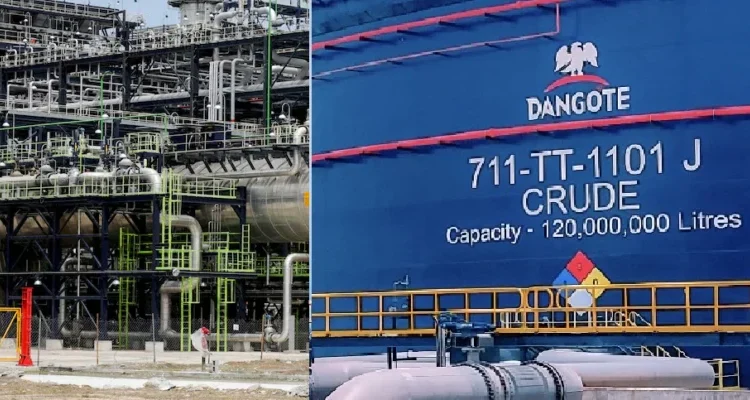Dangote Petroleum Refinery has resumed loading Premium Motor Spirit (PMS), also known as petrol, onto trucks for oil marketers, following a brief suspension due to economic challenges.
With the discontinuation of the naira-for-crude programme, rising crude oil prices, and foreign exchange issues, the 650,000 barrels per day (bpd) refinery had halted truck loading based on naira transactions. However, ship-loading operations on a dollar basis continued. The refinery subsequently requested oil marketers with existing agreements to “top up” their payments to facilitate supply.
A reliable industry source confirmed the resumption, stating, “Loading by trucks has commenced for oil marketing companies which have added more monies.”
Meanwhile, petrol prices have surged nationwide, with new pump and depot prices reaching up to N960 per litre and N900 per litre, respectively, according to the latest price list obtained from MRS Oil & Gas.

Effective from March 28, 2025, the updated pricing structure indicates higher costs across major cities. Lagos has the lowest rates, while northern states record the highest prices.
The naira-for-crude arrangement was initially implemented to enhance domestic fuel supply, curb import costs, and stabilize pump prices. Since October 2024, Dangote Refinery has received 48 million barrels of crude oil under this scheme, amounting to a total supply of 84 million barrels since its operational commencement in 2023.
Meanwhile, a report from the Dangote Petroleum Refinery’s website highlights the refinery’s broader objectives. It states, “The Refinery will meet 100% of the Nigerian requirement of all refined products and also have a surplus of each of these products for export.”
The report further underscores its economic impact, noting, “Dangote Petroleum Refinery is a multi-billion-dollar project that will create a market for $21 billion per annum of Nigerian crude. It is designed to process Nigerian crude with the ability to also process other crudes.”
As the refinery resumes truck loading, stakeholders continue to monitor market reactions and the implications for fuel availability and affordability across the country.

